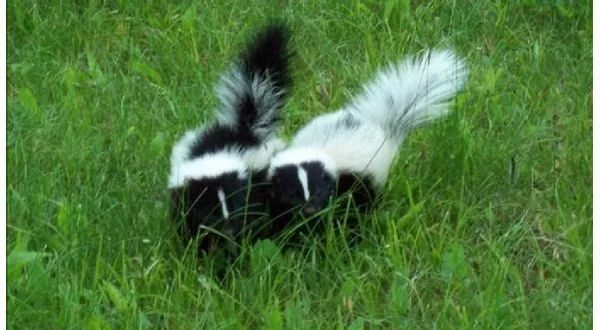
AP Photo
Twin Lakes residents may see or smell more skunks as breeding season runs from February through early March. While often unfairly judged, skunks can be avoided with simple precautions.
According to the University of Arkansas Division of Agriculture (UADA), before letting pets outside, make noise to give skunks time to move along. With poor eyesight but keen hearing and smell, they rely on subtle cues to navigate. If you encounter one, stay calm and speak softly to avoid startling it.
Skunks prefer to flee rather than spray but will issue warnings first: stomping their front feet, turning their backs, or performing a handstand. If these fail, they can spray up to 10 feet.
UADA says if a pet or person gets sprayed, blot the affected area with paper towels before applying a paste of one teaspoon Dawn dish soap, a quarter cup baking soda, and hydrogen peroxide. Let sit for 10 minutes, then rinse. For humans or hairless pets, omit the baking soda to avoid irritation.
Skunks help control pests by eating insects, grubs, and small rodents. They also consume berries, corn, and vegetation but may scavenge unsecured trash or pet food left outside overnight.
To reduce skunk activity, secure trash cans, bring pet food indoors, control rodents, remove brush or wood piles, and address lawn grub infestations.
WebReadyTM Powered by WireReady® NSI










